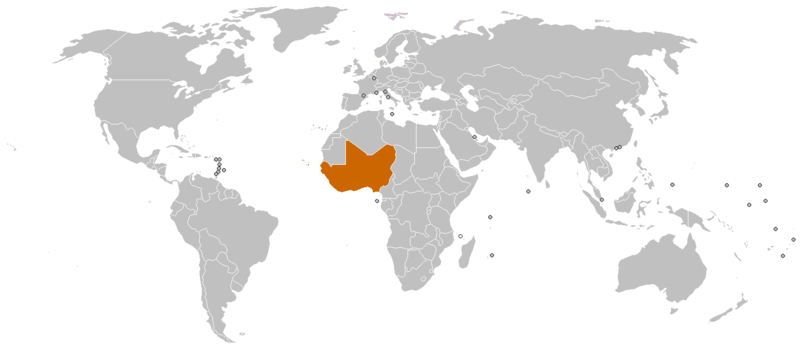ECOWAS Officials Discuss Mali Options
By Magharebia
By Bakari Gueye
Defence chiefs from the Economic Community of West African States (ECOWAS) met in Abidjan at the week-end to discuss the latest developments in Mali.
The commanders of the UN mission to the Ivory Coast (ONUCI) and Operation Unicorn forces also attended the talks, which wrapped up on August 25th.

“We have worked out a consensual concept for Mali. Discussing a concept means discussing a military plan. I don’t think it would be advisable to reveal it here,” said Ivorian Army Chief of Staff Soumaila Bakayoko, who also serves as the Chairman of the ECOWAS Committee of Chiefs of Defence Staff.
The Ivorian senior officer added: “Funds and logistical resources will be needed to implement this concept, which is awaiting validation by ECOWAS chiefs of defence staff.”
During a speech made at the beginning of the meeting, General Bakayoko underlined: “Our meeting today will endeavour to finally come up with a consensual concept for the deployment of the Standby Force in Mali.”
“There is no doubt that the outcomes of our work here are eagerly awaited, both by our chiefs of staff and by our partners, who will only be able to make a commitment if we present to them a shared vision with regard to the deployment of the ECOWAS mission in Mali,” the general added.
Meanwhile, developments in Mali have included the formation of a national unity government with 31 cabinet members.
Acting president Dioncounda Traore has said the transitional government “must channel all energies” in order to restore “territorial integrity and free, fair, transparent and democratic elections”.
Meanwhile French President François Hollande reaffirmed August 27th that his country was willing to provide logistical support for military intervention in Mali, “provided that it is conducted under a United Nations mandate”.
“France and all countries which want to bring this crisis to an end must provide logistical support for African military intervention if it occurs in accordance with international law,” Hollande said during an ambassadors’ conference at the Elysée Palace.
Hollande also said that he was “greatly” concerned about the situation in the Sahel. “A self-proclaimed terrorist entity has been created in northern Mali,” he said. He also mentioned the six French hostages who are being held in the Sahel and pointed out that four of them have been held for “nearly two years”.
Speaking on France 24 on August 23rd, French Defence Minister Jean-Yves Le Drian expressed a similar view: “The potential is there in the Sahara-Sahel strip for the current crises in Mali to spread. The whole of the north bank of the River Niger is no longer under the control of the countries in the region.”
In his view, “the entire Sahel is becoming Talibanised”. He added that “the desert regions of Niger are under threat, and French uranium interests along with them.”
Bernard Lugan, an expert on Africa, wrote in the daily newspaper L’Expression August 24th: “All of the necessary factors are in place to justify intervention in northern Mali, especially now that the Malian army has collapsed and AQIM has moved in, strengthening and expanding its area of activity in northern Mali, a region which was previously a stronghold of the separatist movement.”
The Malian authorities have already said they would agree to the deployment of a West African force in the north of the country. However, they are not willing to see such a force deployed in Bamako.
